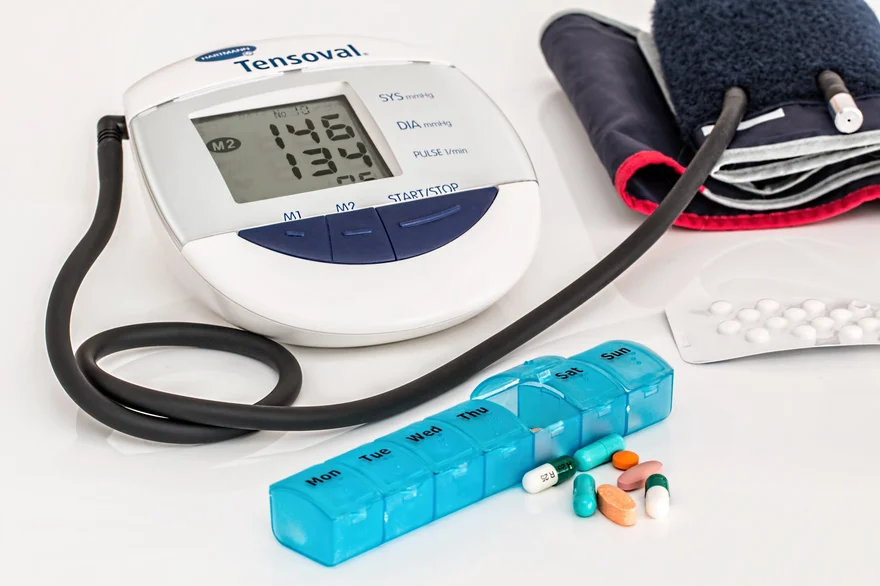Preventive Healthcare
Cryptic Pregnancy: Why Some Women Don't Know They're Pregnant
6546 Views
0

What is a cryptic pregnancy?
A cryptic pregnancy is when a woman is unaware that she is pregnant, often until the third trimester or even until she goes into labour. Unlike a concealed pregnancy where the woman knows she is pregnant but hides it, in a cryptic pregnancy the woman truly does not realise she is expecting a baby.
The term "cryptic" means hidden or obscure. In a cryptic pregnancy, the usual physical signs of pregnancy like a growing belly, morning sickness, and missed periods may be absent, minimal, or misinterpreted. As a result, the pregnancy goes undetected for an extended period.
Who is at risk for a cryptic pregnancy?
While a cryptic pregnancy can happen to any woman, certain factors increase the likelihood:
- Young age, especially teenagers
- Irregular menstrual cycles or a history of missed periods
- Recent childbirth, breastfeeding, or perimenopause
- Polycystic ovary syndrome (PCOS) which causes hormonal imbalances
- Certain medications like contraceptives that may mask pregnancy symptoms
- Extreme stress or major life changes
- History of infertility or being told conception is unlikely
- Mental health conditions like depression, schizophrenia or bipolar disorder
Women with risk factors should be alert for subtle signs of pregnancy and take a test if in doubt. Regular check-ups can also help detect a cryptic pregnancy early.
How common is a cryptic pregnancy?
Cryptic pregnancies are relatively rare but not as uncommon as one might think. Studies estimate that:
- About 1 in 475 women are unaware of their pregnancy until 20 weeks gestation
- Around 1 in 2,500 women do not realise they are pregnant until they go into labour
- Approximately 1 in 7,225 pregnancies are discovered during delivery itself
So while it's not an everyday occurrence, a few thousand cases likely occur each year. Increased awareness can help women recognise a cryptic pregnancy sooner.
Will a cryptic pregnancy show on a pregnancy test?
Pregnancy tests work by detecting the hormone human chorionic gonadotropin (hCG) in urine. However, in some cases of cryptic pregnancy, at-home urine tests may show a false negative result due to:
- Taking the test too early before hCG levels rise
- Very low hCG levels that don't meet the test's threshold
- Doing the test incorrectly or misinterpreting the results
- Hormonal imbalances that affect hCG production
If a woman suspects she may be pregnant despite a negative test, it's best to repeat the test after a week or consult a doctor for a blood test which can detect pregnancy earlier and more accurately. Ultrasounds can also confirm a cryptic pregnancy.
Do you get your period in a cryptic pregnancy?
Most women do not get real menstrual periods during any pregnancy, including a cryptic one. However, some pregnant women may experience light bleeding or spotting that can be mistaken for a period. This is not a true menstrual bleed but rather occurs due to hormonal changes or minor complications. In a cryptic pregnancy, this bleeding may be interpreted as a sign that the woman is not pregnant.
What causes a cryptic pregnancy?
The exact cryptic pregnancy causes are not fully understood, but contributing factors include:
- Lack of visible pregnancy symptoms like nausea, breast changes and weight gain
- Continued light bleeding that resembles menstrual periods
- Hormonal imbalances that suppress usual pregnancy signs
- A tilted uterus that doesn't show a prominent baby bump
- Misinterpreting pregnancy symptoms as being due to stress, weight changes or medical conditions
- Denial of the possibility of pregnancy due to using birth control or being told conception is unlikely
What are the signs of cryptic pregnancy?
The challenge with cryptic pregnancy is that the usual symptoms may be very mild, absent, or not recognized as related to pregnancy. Common cryptic pregnancy symptoms include:
- missed or unusually light periods,
- tender and swollen breasts,
- morning nausea,
- fatigue,
- bloating,
- mild weight gain,
- increased urination,
- mood swings, and
- mild cramps or back pain.
Since these symptoms can also be linked to other conditions, it's important not to dismiss them. If you suspect cryptic pregnancy symptoms, taking a pregnancy test is a good first step. Trust your instincts—if something feels different or off, consider testing, especially if you have risk factors for a cryptic pregnancy.
How long does a cryptic pregnancy last?
A cryptic pregnancy lasts as long as a regular pregnancy, about 40 weeks from the last menstrual period. However, since the pregnancy is not detected in the first trimester as usual, it may seem shorter. In some cases, a cryptic pregnancy is only discovered when the woman goes into labour unexpectedly. The baby is often born smaller or earlier than average since prenatal care was absent during the pregnancy.
How is a cryptic pregnancy diagnosed?
Diagnosing a cryptic pregnancy can be tricky since symptoms are often subtle or explained away. Doctors may suspect it when a woman reports:
- A negative pregnancy test but no period for several months
- Unusual symptoms like nausea, breast changes, and fatigue
- Foetal movement sensations in the belly
- Sudden, unexplained weight gain and a growing abdomen
To confirm a cryptic pregnancy, doctors use:
- Sensitive blood tests that detect pregnancy hormones
- Abdominal or transvaginal ultrasounds that show the baby
- A physical exam to feel the size of the uterus and check for a foetal heartbeat
How is a cryptic pregnancy treated?
Cryptic pregnancy treatment focuses on ensuring the health and safety of the mother and baby. It often involves:
- Comprehensive prenatal care including check-ups, tests and ultrasounds
- Monitoring foetal growth and development
- Maternal nutrition and vitamin supplementation
- Modifying any unhealthy lifestyle factors like smoking or drinking
- Preparing for labour and delivery, often with extra monitoring
- Addressing any psychological factors like denial or depression
While it's not ideal to start prenatal care late, it's vital to begin as soon as a cryptic pregnancy is diagnosed. With proper management, many women with a cryptic pregnancy can still have a healthy baby.
Can we prevent cryptic pregnancy?
While not all cryptic pregnancies can be prevented, women can reduce their risk by:
- Tracking menstrual cycles and taking a pregnancy test if a period is late
- Being aware of early pregnancy signs and symptoms
- Maintaining a healthy weight and managing conditions like PCOS
- Addressing any psychological factors that may lead to denial
- Seeing a doctor regularly, especially if pregnancy is a possibility
Women who have had a cryptic pregnancy before or have risk factors should be extra vigilant about monitoring for signs of pregnancy.
What are the complications of a cryptic pregnancy?
A cryptic pregnancy can have risks for both mother and baby due to the lack of prenatal care and monitoring. Potential complications include:
- Premature birth or low birth weight
- Undiagnosed maternal health conditions like high blood pressure or diabetes
- Nutrient deficiencies that affect fetal development
- Birth defects due to missed prenatal screening and prevention
- Psychological distress for the mother due to the surprise pregnancy
- Lack of preparation for childbirth and parenting
- Greater risk of labour complications due to insufficient prenatal guidance
- Difficulty accessing timely medical interventions during delivery
While not all cryptic pregnancies have poor outcomes, early detection and treatment are vital for reducing complications. Regular prenatal care makes a big difference in ensuring a healthier pregnancy and birth experience.
Conclusion
Knowing the signs and symptoms of pregnancy, even subtle ones can help identify a cryptic pregnancy sooner. If you think you may have a cryptic pregnancy, don't hesitate to reach out for medical support. Metropolis Healthcare offers comprehensive prenatal testing and monitoring to help you have a healthy pregnancy and baby, even if detected late. Their at-home blood tests can confirm a pregnancy, and their expert team can guide you through the next steps.
Remember, knowledge is power when it comes to your reproductive health. Recognising a cryptic pregnancy and seeking prompt care can make all the difference.























 WhatsApp
WhatsApp